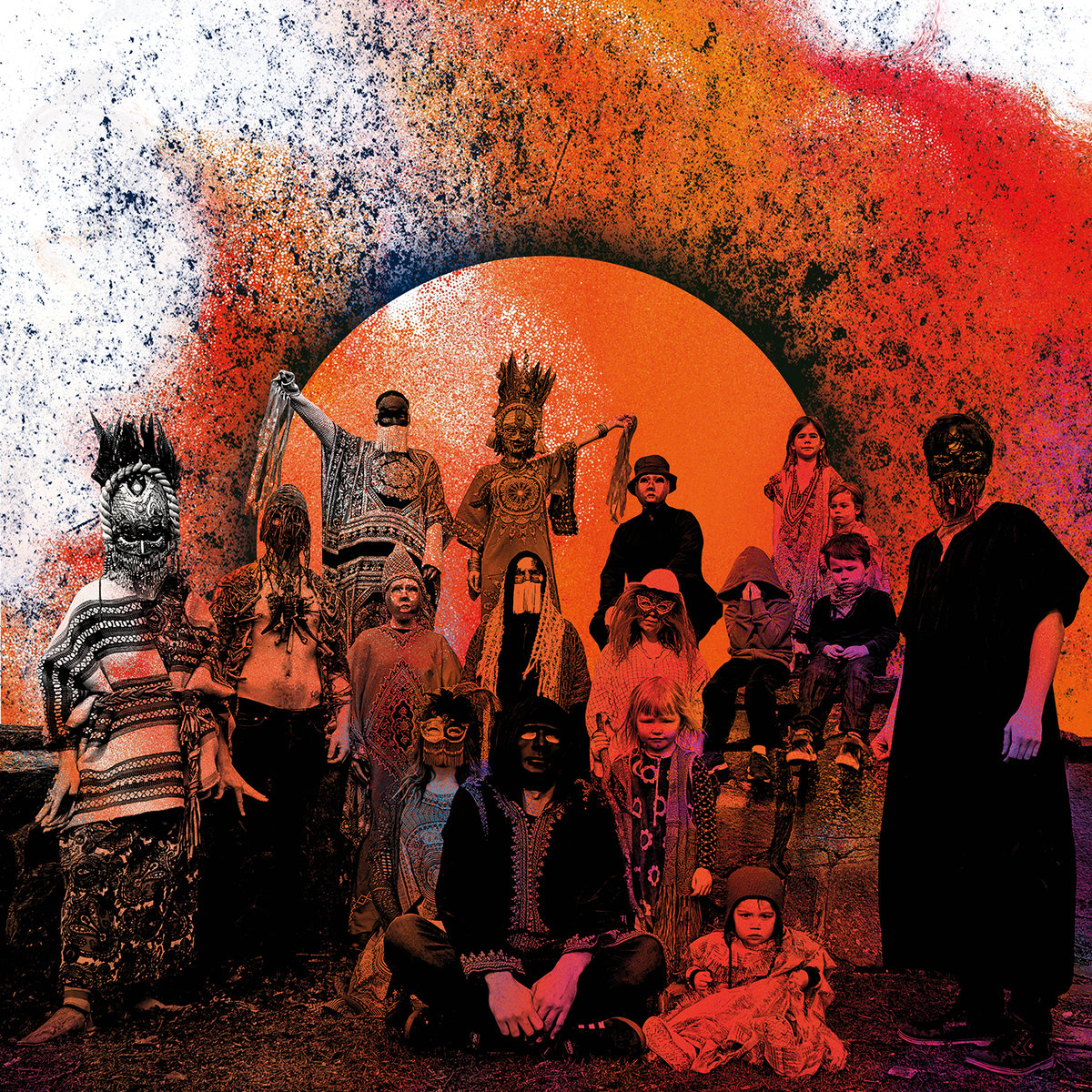GOAT
Requiem
SUB POP
7/10
As is surely the case with no small number of isolated, unpronounceable Scandinavian enclaves, Korpilombolo, Sweden, is said to have historical ties to pagan worship. Legend has it (and it’s truly just that—legend) that Christian crusaders swept in and visited all manner of punishment upon the unholy town, whose residents cursed it upon retreat.
GOAT claim to be from Korpilombolo, though they might also be freaking out the neighbors in Gothenburg. Exactly where they come from and who they are apparently only their nearest and dearest are allowed to know—names are expressly withheld to protect the lilywhite and innocent (or maybe just for promotional purposes).
This only deepens the fascination with a collective whose aesthetic presentation suggests some cross-pollination of Ming dynasty farmer, Medieval witch doctor, and Kabuki-theater serial killer. But this isn’t cutesy indie misappropriation; GOAT are, for all intents and purposes, dead bloody serious about it all.
The music of their third album, Requiem, has nothing of the death rattle (or Mozart, for that matter) about it. Rather, it opens with “Djorolen/Union of Sun and Moon,” which is like some kooky take on “Moonage Daydream.” One quickly gets the sense that these are not so much individual songs as sections of a mass, of sorts. To wit, “Temple Rhythms” is four minutes of the incessantly repeated rhythm of the title—and a mass, obviously, revolves around repetition.
Yet despite the occasional seven-minute blast of feral acid rock (“Goatfuzz”), quite a bit of Requiem is actually gloriously celebratory. “Trouble in the Streets,” in particular, takes a bouncy reggae undercurrent and piles on the exuberant tribal drumming and sprightly slide guitar. There’s nothing so pedestrian as verses and choruses here, just a stentorian, histrionic—but pretty—female voice howling out ideological mini-manifestos like “Share my bread, taste my food, try my robe / Come sit down, by my side, play my drums.”
They’ve been branded as “psychedelic”—and “Alarms,” to be sure, is snoozed Strawberry Alarm Clock—but there is a veritable world tour of instrumentation and inspiration going on here, from India to Burundi, from California to who knows where? Uzbekistan?
The delicate, enigmatic “Ubuntu” closes the set, and it seems to suggest that our tumultuous journey has finally brought us to a place of tranquility. Several voices take turns at rapid-fire philosophizing, and what stands out is one phrase in particular: “Together we can be able to make it.”
Glory to GOAT in the highest.







